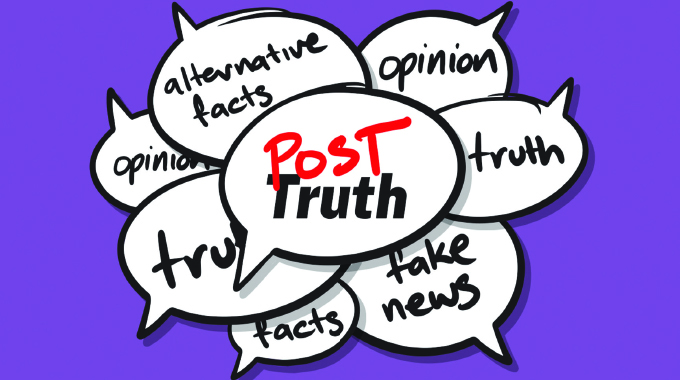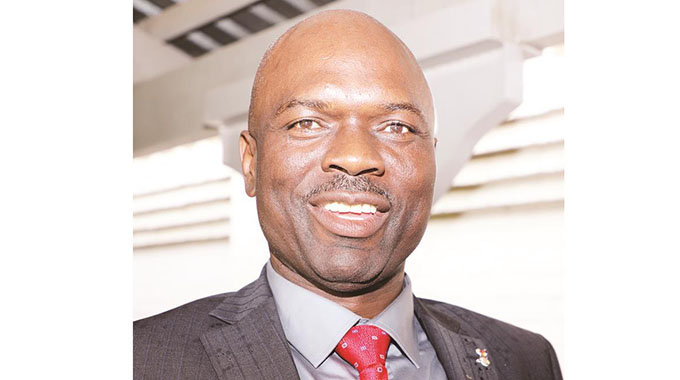It’s time for honest peer review in journalism

Ranga Mataire
Deputy Editor
It is unusual for a newspaper stable to call to order another media outlet on a particular published story, no matter how decadent the story is.
The golden silent rule is never to publicly critique a fellow journalist or media house, as issues of editorial lapses are considered ‘in-house’.
However, once in a while, there are exceptions where peer-review becomes a necessity in reminding each other to remain true to the tenets of the noble profession that we call journalism.
It would be remiss if fellow journalists fail to respectfully remind each other of the enormous power they hold and the need to use that power responsibly, lest it creates national dissonance.
Instead of exchanging the usual platitudes and glossing over apparent editorial lapses, journalists need to do some serious self-reflection about their basic mandate.
A case in point is a story published in one local daily newspaper on 30 March 2021 with a headline ‘Zanu PF printing MDC cards, regalia’.
There is a need for a disclaimer.
Picking this story as a typical example of what ought not to be journalism must not be misconstrued as a bidding for the ruling party.
Far from it, it is the basic tenets of journalism that we need to interrogate.
It is given that media houses are in the business of selling stories.
The more sensational the headline, the more the story is likely to attract many eyeballs. But in framing stories, including coming up with a suitable headline, editors or media gatekeepers are always conscious of the need for soberness and not to put off a reader by a spurious headline.
What is most regrettable about the story in the local daily to any discerning reader is that it puts into question the whole idea of what constitutes news.
The basic 5Ws and an H come into focus. Who initiated this story? Was it the reporter, or the main source, who is copiously quoted?
What can be inevitably deducted from the story is that it attempts to do a bidding for the MDC-A opposition party, which in preceding weeks had experienced some setbacks as evidenced by defections to the ruling party by some senior members.
The former senior executive members, who included Blessing Chebundo and Lilian Timveous, had publicly declared their loyalty and allegiance to the governing party, citing a myriad of grievances.
What is also apparent in reading the story is that it is based almost entirely on claims by the MDC-A spokesperson, Ms Fadzayi Mahere.
Ms Mahere makes the mendacious claims of fake regalia and membership cards being printed by Zanu PF.
The article is so one-sided as to leave the reader confused as to who is telling the story, Ms Mahere or the reporter.
There is no attempt by the reporter to tell the story. It is all a regurgitation of Ms Mahere’s comments.
Probably feeling a tinge of guilt in how the story is skewed, the reporter quotes the Zanu PF spokesperson Simon Khaya Moyo at the tail-end, as if to give an illusionary balance. Any ordinary reader who had followed the defections of senior opposition figures surely found the story laughable.
There are a few questions that the reporter could have asked to give their article some respectability;
• Where exactly were these “fake” cards and regalia printed?
• What specific features make the paraphernalia fake?
• What do genuine articles look like by comparison?
• Were the defections of Chebundo and Timveous also fake?
The fact that these questions were never posed to Ms Mahere points to a clear agenda or setting what we may call post-truth telling.
What is post-truth telling in journalism?
In 2016, Oxford Dictionaries chose “post-truth” as the Word of the Year, and defined it as a condition “in which objective facts are less influential in shaping public opinion than appeals to emotion and personal belief.”
There is no doubt that the rise of fake news and attacks on the media by politicians have created distinctively dangerous situations for journalism.
As media practitioners, we need to be cautious in ensuring that journalism does not slide into post-truth narratives as this would be a disservice to the public we pledge to serve.
Judging from the way the story is slanted, it can be argued that journalism faces the risk of turning rogue and in turn speeds up the process of spreading lies, misinformation, distortions and dubious claims like those made by Ms Mahere.
As we peer review each other, journalists have a few issues to grapple with.
What can mainstream media do to effectively and professionally moderate what is consumed by our readers?
How can mainstream media use social media tools to defend the truth, present the correct information and balance opinions?
We often find ourselves trapped as journalists between the desire to restore journalism’s authority as a stickler to truth-seeking and the powerful sway of our own individual biases and emotions.
The story in question typifies that dilemma as it comes out as a piece specifically authored and framed to further the agenda and interest of one political organisation.







Comments